meeting
May 2: Beth Harris (Khan Academy) “Art History Education Goes Digital: The Problem (& Promise) of the Digital Image”
On 25, Apr 2013 | In Meetings | By Charlie Edwards
Please join us on Thursday May 2, 2013 for our final event of the semester: we are excited to welcome Beth Harris, co-Dean with Steven Zucker of Art and History at the Khan Academy. She and Dr. Zucker are Executive Editors of Smarthistory at Khan Academy, an open educational resource for art history that they co-founded (as smarthistory.org) in 2005.
Details are below – we look forward to seeing you there!
Beth Harris
“Art History Education Goes Digital: The Problem (& Promise) of the Digital Image”
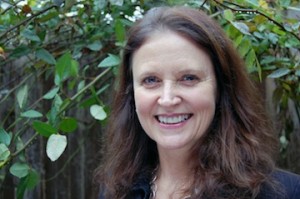 Thursday May 2, 2013, 6:30pm-8:30pm
Thursday May 2, 2013, 6:30pm-8:30pm
CUNY Graduate Center, Room 6421
Co-sponsored by the Master of Arts Program in Liberal Studies, CUNY Graduate Center.
Please register here: http://cunydhi-bethharris.eventbrite.com/
The event is free and open to the public; registration is not mandatory.
Images may be everywhere, but we are doing very little to educate our students about their history and how to engage images critically. This deficiency is compounded by the fact that open access to digital reproductions of cultural heritage objects in the public domain is still many years away. Museums—the institutions that own many of these works of art and often control the best images—remain committed to print publications, and use the web primarily for marketing. At Smarthistory, we have been trying to fill this void, asking how can we best use the web for art history education. Can we scale (with MOOCs in mind) humanities education? Can we make art history more engaging by making it more conversational and experiential while taking advantage of the proliferation of images and video that can contextualize the work of art? How can art history help other disciplines to use images more responsibly?
About Beth Harris:
Dr. Beth Harris is co-Dean with Steven Zucker of Art and History at the Khan Academy. Before joining the Khan Academy, she was the first person to hold the position of Director of Digital Learning at The Museum of Modern Art, where she started MoMA Courses Online. She also co-produced educational videos, websites and apps. Before joining MoMA, Beth was Associate Professor and Director of Distance Learning at the Fashion Institute of Technology where she taught both online and in the classroom. Her scholarly work includes editing and contributing to Famine and Fashion: Needlewomen in the Nineteenth Century (Ashgate, 2005), many book reviews, and “The Slide Library: A Posthumous Assessment in the Service of Our Digital Future,” in Teaching Art History with Technology: Case Studies (2008). She received her Master’s degree from the Courtauld Institute of Art in London, and her Doctorate in Art History from the Graduate Center of the City University of New York.
May 1: Doug Reside (NYPL) on the Digital Creative Process of Jonathan Larson’s RENT
On 26, Apr 2012 | In Meetings | By Charlie Edwards
Please join us on Tuesday, May 1, 2012 when we will be delighted to host Doug Reside of the New York Public Library.
“How do you document real life?: Discovering the Digital Creative Process of Jonathan Larson’s RENT”
Doug Reside, New York Public Library
Tuesday, May 1, 2012, 6:30pm-8:30pm
Room 6496, CUNY Graduate Center
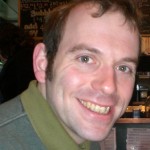
Doug Reside will discuss his attempts to reconstruct the creative process that produced the musical RENT by recovering and studying the digital drafts from Jonathan Larson’s original floppy disks. Reside will also offer some reflections on his newly minted position as Digital Curator of the Performing Arts at New York Public Library and will suggest strategies libraries may employ for dealing with the coming onslaught of born digital research collections.
About Doug Reside:
Doug Reside became the first Digital Curator of the Performing Arts at New York Public Library in February of 2011 after serving for four and a half years on the directorial staff of the Maryland Institute for Technology in the Humanities (MITH) at the University of Maryland in College Park. He has led numerous Digital Humanities projects and is currently editing the Musical of the Month blog at NYPL which makes available one musical theater libretto each month in various ebook formats.
Spring 2012 CUNY Digital Studies/Digital Humanities Seminar Schedule
On 26, Apr 2012 | In Meetings | By Charlie Edwards
We are delighted to announce (though belatedly!) our full schedule of events for Spring 2012, sponsored by the Center for the Humanities at the CUNY Graduate Center. We have three exciting presentations still to come in May and very much hope you will be able to join us.
All events are free and open to the public, and take place at the CUNY Graduate Center.
Friday, February 17, 4pm-6pm: “Debates in the Digital Humanities: A Panel Discussion”
Chair: Matthew K. Gold and Panelists: Stephen Brier, Charlie Edwards & David Greetham
Room 4406, CUNY Graduate Center
Sponsored by the Ph.D. Program in English
The semester began with a panel discussion kindly hosted by CUNY Graduate Center’s English PhD Program as part of the program’s “Friday Forum” series. The topic was Debates in the Digital Humanities, recently published by the University of Minnesota Press, and edited by our own Matthew K. Gold.
Monday, April 2, 6:30pm-8:30pm: “Risking Failure by Playing Around with Digital Pedagogy”
Katherine D. Harris (San José State University)
Room 6417, CUNY Graduate Center
For our second event of the semester, we welcomed CUNY alum Katherine D. Harris to speak on DH in the undergraduate classroom. Her talk focused on her experiences with a student-driven project that is run outside the institutional boundaries of a traditional English Department curriculum and the risks, failures, and disappointments that are inherent in adopting a collaborative and playful learning environment.
Tuesday, May 1, 6:30pm-8:30pm: “How do you document real life?: Discovering the Digital Creative Process of Jonathan Larson’s RENT”
Doug Reside, New York Public Library
Room 6496, CUNY Graduate Center
Doug Reside will discuss his attempts to reconstruct the creative process that produced the musical RENT by recovering and studying the digital drafts from Jonathan Larson’s original floppy disks. Reside will also offer some reflections on his newly minted position as Digital Curator of the Performing Arts at New York Public Library and will suggest strategies libraries may employ for dealing with the coming onslaught of born digital research collections.
Tuesday, May 8, 6:30pm-8:30pm: “Digital Paleography at CUNY: The Spanish Paleography Digital Teaching and Learning Tool”
Ramona Hernández and Anthony Stevens-Acevedo, CUNY Dominican Studies Institute, City College
Room 6496, CUNY Graduate Center
The leaders of the Spanish Paleography Digital Teaching and Learning Tool project, funded by a Digital Humanities Start-Up Grant awarded by the NEH’s Office of Digital Humanities, will join us to discuss their work to date. The project aims to teach users the paleographic skills required to decode early-modern Spanish manuscripts.
Thursday, May 31, 6:30pm-8:30pm: “Digital Humanities and Natural Disasters: Archiving Catastrophe”
Paul Millar (University of Canterbury, New Zealand), Tom Scheinfeldt (George Mason University), and Steve Brier (CUNY Graduate Center)
Room 6496, CUNY Graduate Center
Three leading Digital Humanists will join us in a panel discussion that addresses DH-related efforts to archive and preserve materials after catastrophic events. They will discuss the CEISMIC Canterbury Earthquakes Digital Archive, the Hurricane Digital Memory Bank, and the September 11 Digital Archive. All three projects seek not only to preserve the digital record of the events, but to foster positive legacies by allowing the people affected to tell their stories in their own words, which as part of the historical record will remain accessible to a wide audience for generations to come.
Oct 18: DH in the Classroom: Shannon Mattern & Mark Sample
On 13, Oct 2011 | In Meetings | By Charlie Edwards
Please join us on Tuesday October 18, 2011, when we are excited to welcome two innovative practitioners of “Digital Humanities in the Classroom” – The New School’s Shannon Mattern, and Mark Sample, of George Mason University.
Details are below; we look forward to seeing you there!
Time & Place: Tuesday October 18, 2011, 6:30-8:30pm, Room 6496, CUNY Graduate Center
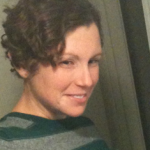 Shannon Mattern, “Beyond the Seminar Paper: Setting New Standards for New Forms of Student Work”
Shannon Mattern, “Beyond the Seminar Paper: Setting New Standards for New Forms of Student Work”
By exploring how new technologies might function as teaching tools or platforms on which students can demonstrate their learning, we expand the means and ends of education. With this increasing openness of pedagogical forms comes the responsibility to justify our choices and develop new forms of criticism and modes of assessment. Using several of my own courses as examples, I’ll address the challenges and potential benefits of holding students, and ourselves, accountable for the choices we make in our classrooms and advising relationships. I’ll focus on the value of (1) student documentation of their learning process, and in particular (2) students’ justification of their chosen methods and modes of presentation; (3) collaborative development of criteria for evaluation; and (4) connecting our work in the classroom to larger public problems and public institutions.
Suggested readings:
- Shannon Mattern, “Trying to Wrap My Head Around the Digital Humanities, Part 2” Words in Space (June 23, 2010)
- Shannon Mattern, “Evaluating Multimodal Student Work” Words in Space (August 11, 2010)
- Steve Anderson, “Regeneration: Multimedia Genres and Emerging Scholarship” Institute for Multimedia Literacy (June 29, 2008)
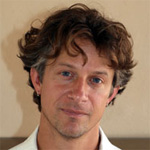 Mark Sample, “Building and Sharing When You’re Supposed to be Teaching”
Mark Sample, “Building and Sharing When You’re Supposed to be Teaching”
My pedagogy can increasingly be summed up in five words: “Make things. And share them.” I will talk briefly about my move toward assignments and projects in the undergraduate humanities classroom that emphasize making—as opposed to simply writing. I will also address the sharing aspect of these projects, which I see as a critical intervention into the enclosured experience most students have in higher education.
Suggested readings:
- “Student Contracts for Digital Projects” by Jeffrey McClurken
- “Integrating a Digital Project Into a Class: Deciding on a Project” by Amy Cavender
- “Using a Graphic Illustrator in Higher Education: Comic Life” by Billie Hara
Shannon Mattern is an Assistant Professor of Media Studies and Film at The New School and was, from 2006 to 2009, director of the Masters in Media Studies program. Her research and teaching focus on relationships among media, architectural, and urban space. Her book, The New Downtown Library, was supported by the Graham and Mellon foundations and published by the University of Minnesota Press in 2007. She has also published in several edited volumes and in journals including Space and Culture, Public Culture, and the Journal of Architectural Education. Her classes, which regularly involve the use of digital media, have resulted in the creation of exhibitions and installations and, in Fall 2010, thanks to the support of an Innovations in Education grant from The New School, a prototype of an open-source mapping tool for scholarly urban research. She is a recipient of The New School’s 2011 Distinguished University Teaching Award.
Mark Sample is an Assistant Professor in the Department of English at George Mason University, where is he also an affiliated faculty member with GMU’s undergraduate Honors College, its Cultural Studies doctoral program, and the Center for History and New Media. His research focuses on contemporary fiction, electronic literature, and videogames. His examination of the representation of torture in videogames was recently published in Game Studies, and he is working on a collaboratively written book about the Commodore 64 home computer. Mark has work in Hacking the Academy, a crowdsourced scholarly book forthcoming in print by the digitalculturebooks imprint of the University of Michigan Press. Mark has recently remixed the entire text of Hacking the Academy as Hacking the Accident. Mark is also an outspoken advocate of open source pedagogy and open source research. In recognition of his commitment to innovation in teaching, he was the recipient of George Mason’s 2010 Teaching Excellence Award. He is a regular contributor to ProfHacker, a feature at the Chronicle for Higher Education that focuses on pedagogy and scholarly productivity, and he also writes for Play the Past, a collaboratively edited scholarly blog that explores the intersection of cultural heritage and games.
This event is co-sponsored by The CUNY Digital Humanities Initiative and the CUNY Digital Studies Group, in partnership with The Center for the Humanities at The Graduate Center, CUNY.
May 4: Douglas Armato on “Digital Media’s Prehistory and the Nine Lives of Scholarly Publishing”
On 29, Apr 2011 | In Meetings | By Charlie Edwards
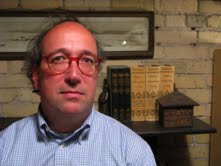 Please join us on Wednesday, May 4, 2011, when we are excited to welcome Douglas Armato, Director of the University of Minnesota Press and Editor of its Digital Culture Studies List, to speak on “Digital Media’s Prehistory and the Nine Lives of Scholarly Publishing.”
Please join us on Wednesday, May 4, 2011, when we are excited to welcome Douglas Armato, Director of the University of Minnesota Press and Editor of its Digital Culture Studies List, to speak on “Digital Media’s Prehistory and the Nine Lives of Scholarly Publishing.”
Scholarly publishing has survived through adaptation and economic reinvention and now faces new challenges, and opportunities, as the market for ebooks reaches escape velocity and the emergence of the digital humanities reconfigures academic work. Doug’s talk will discuss how university presses are adapting both individually and collectively to the digital environment and how presses remain a vital counterforce to the diminished status of of the humanities in higher education.
This will our last public event of the semester – we very much hope you can attend. We would also like to take the opportunity to thank all of you who have participated in CUNY DHI, online or in person, and helped to make the group’s first year such a success. We look forward to next year’s activities!
Doug’s talk is co-sponsored by The CUNY Digital Humanities Initiative and the CUNY Digital Studies Group, in partnership with The Center for the Humanities at The Graduate Center, CUNY.
Time & Place: Wednesday, May 4, 2011, 6:30-8:30pm, Room C201/202, CUNY Graduate Center
March 30: Kathleen Fitzpatrick on “Peer Review, Open Scholarship, and the Digital Humanities”
On 25, Mar 2011 | In Meetings | By Charlie Edwards
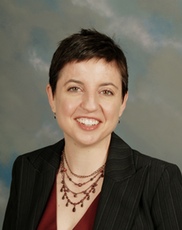 We are delighted that on Wednesday, March 30 we will be hosting Kathleen Fitzpatrick of Pomona College, who will speak on “Peer Review, Open Scholarship, and the Digital Humanities.”
We are delighted that on Wednesday, March 30 we will be hosting Kathleen Fitzpatrick of Pomona College, who will speak on “Peer Review, Open Scholarship, and the Digital Humanities.”
Peer review is the sine qua non of the academy: we use it in nearly everything we do, and cannot imagine what scholarship would be without it. But for such a crucial component of the ways that we work, none of us are wholly satisfied with it, either. Moreover, conventional forms of peer review are often misaligned with the kinds of open scholarship being produced in the digital humanities. This talk takes a brief look at the history and the present criticism of peer review as a means of exploring its future, particularly as scholarly publishing moves increasingly online: what might peer review that took advantage of the reputation economies developed within networked communities look like, and how might it help scholarly communication flourish?
Kathleen Fitzpatrick is Professor of Media Studies at Pomona College. She is author of The Anxiety of Obsolescence: The American Novel in the Age of Television (2006) and Planned Obsolescence: Publishing, Technology, and the Future of the Academy, forthcoming from NYU Press. Planned Obsolescence was published using an experimental open peer review process by MediaCommons Press, a project of the digital scholarly network MediaCommons, co-founded by Kathleen. She has published in journals including the Journal of Electronic Publishing, PMLA, Contemporary Literature, and Cinema Journal, and has blogged at Planned Obsolescence since 2002.
Kathleen’s talk is co-sponsored by The CUNY Digital Humanities Initiative and the CUNY Digital Studies Group, in partnership with The Center for the Humanities at The Graduate Center, CUNY.
Time & Place: Wednesday, March 30, 2011, 6:30-8:30pm, Room 6417, CUNY Graduate Center
March 9: David L. Hoover on “New-Fangled/Old-Fashioned Digital Literary Studies”
On 03, Mar 2011 | In Meetings | By Charlie Edwards
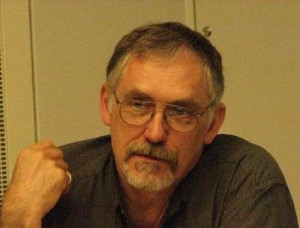 Please join us on Wednesday March 9, when we will welcome Professor David L. Hoover of New York University to speak on “New-Fangled/Old-Fashioned Digital Literary Studies.”
Please join us on Wednesday March 9, when we will welcome Professor David L. Hoover of New York University to speak on “New-Fangled/Old-Fashioned Digital Literary Studies.”
Although computational approaches to literary studies have a relatively long history, dating back to at least the 1960s, the recent explosive growth in the availability of digital texts and the increasing power of digital tools has encouraged new methods and techniques. David’s talk will take a look at some of the kinds of literary analysis that are possible only with digital texts and digital tools, and then focus in a bit more depth on a relatively new method of extracting the characteristic vocabulary of an author, text, or group.
David is Professor of English at New York University, where he has taught since 1981. His research interests include the digital humanities, computational stylistics, corpus stylistics, authorship attribution, animal language and cognition, and Old English meter. His most recent books are Stylistics: Prospect and Retrospect (2007) and Language and Style in The Inheritors (1999). He also teaches a seminar on “Out-of-the-Box Text Analysis” at the Digital Humanities Summer Institute held at the University of Victoria, Canada.
David’s talk is co-sponsored by The CUNY Digital Humanities Initiative and CUNY Graduate Center’s PhD Program in English, in partnership with the CUNY Digital Studies Group and The Center for the Humanities at The Graduate Center, CUNY.
We look forward to seeing you there.
Time & place: Wednesday, March 9, 2011, 6:30-8:30pm, CUNY Graduate Center, Room 6417.
CUNY Digital Humanities Initiative Spring 2011 Schedule
On 16, Feb 2011 | In Meetings | By Matthew K. Gold
Following up on our wonderful inaugural speaker series last Fall, we are very pleased to announce our schedule for the Spring 2011 semester. Our theme this Spring is DIY Digital Humanities.
The events are co-sponsored by the CUNY Digital Studies Group, and presented in partnership with The Center for the Humanities at The Graduate Center, CUNY. We hope you will be able to join us.
Wednesday, February 9, 2011: DIY DH at CUNY
6:30-8:30pm
New Media Lab, CUNY Graduate Center
“DIY DH”
Our theme for this semester is “DIY DH.” In this spirit, group members Lauren Klein, Sarah Ruth Jacobs, Cynthia Tobar, Bronwen Densmore, Amanda Licastro, Charlie Edwards, and Matthew Gold have volunteered to share their experiences using digital technologies in their classrooms and research. On the agenda: using off-the-shelf tools in Macaulay Honors College seminars, WordPress plugins for the paperless and networked classroom, Omeka and the Mina Rees library, and reports from recent THATCamps and the MLA Convention.
Wednesday, February 23, 2011: Patrik Svensson (Umeå University, Sweden) on “Designing the Digital Humanities”
6:30-8:30pm
Room 9205, CUNY Graduate Center
“Designing the Digital Humanities”
The digital humanities are being built and negotiated at this point in time by universities, departments, scholars, programmers, funding agencies, construction workers and various other people and institutions. Drawing on my four-article series on the digital humanities and my own take on the field, I will talk about understanding, building and designing the digital humanities. I will use HUMlab at Umeå University as a starting point, and will also be showing some material – including photos and film clips – from the lab. The discussion will range from visions and design parameters to material manifestations such as a brand-new led-based ceiling light fixture/screen and a plant wall. Questions raised include: What choices do we need to make? What are the underlying visions? What basic values are important? What cyberinfrastructure do we need? Can there be a no-tent digital humanities? What is the advantage of physical lab or studio spaces? Can the digital humanities change the world (or at least the academy)? I combine analytical work on the digital humanities as a field and project with a strong engagement in the future of the field.
Patrik Svensson is the director of HUMlab at Umeå University, Sweden.
Wednesday, March 9, 2011: David L. Hoover (NYU) on “New-Fangled/Old-Fashioned Digital Literary Studies”
6:30-8:30pm
Room 6417, CUNY Graduate Center
“New-Fangled/Old-Fashioned Digital Literary Studies”
Although computational approaches to literary studies have a relatively long history, dating back to at least the 1960’s, the recent explosive growth in the availability of digital texts and the increasing power of digital tools has encouraged new methods and techniques. David’s talk will take a look at some of the kinds of literary analysis that are possible only with digital texts and digital tools, and then focus in a bit more depth on a relatively new method of extracting the characteristic vocabulary of an author, text, or group.
David L. Hoover is Professor of English at New York University.
Wednesday, March 30 2011: Kathleen Fitzpatrick (Pomona College) on “Peer Review, Open Scholarship, and the Digital Humanities”
6:30-8:30pm
Room 6417, CUNY Graduate Center
“Peer Review, Open Scholarship, and the Digital Humanities”
Peer review is the sine qua non of the academy: we use it in nearly everything we do, and cannot imagine what scholarship would be without it. But for such a crucial component of the ways that we work, none of us are wholly satisfied with it, either. Moreover, conventional forms of peer review are often misaligned with the kinds of open scholarship being produced in the digital humanities. This talk takes a brief look at the history and the present criticism of peer review as a means of exploring its future, particularly as scholarly publishing moves increasingly online: what might peer review that took advantage of the reputation economies developed within networked communities look like, and how might it help scholarly communication flourish?
Kathleen Fitzpatrick is Professor of Media Studies at Pomona College.
Wednesday, May 4, 2011: Douglas Armato (University of Minnesota Press) on “Digital Media’s Prehistory and the Nine Lives of Scholarly Publishing“
6:30-8:30pm
Room C201/202, CUNY Graduate Center
“Digital Media’s Prehistory and the Nine Lives of Scholarly Publishing“
Scholarly publishing has survived through adaptation and economic reinvention and now faces new challenges, and opportunities, as the market for ebooks reaches escape velocity and the emergence of the digital humanities reconfigures academic work. The Director of the University of Minnesota Press and editor of its list in digital culture studies discusses how university presses are adapting both individually and collectively to the digital environment and how presses remain a vital counterforce to the diminished status of of the humanities in higher education.
Douglas Armato is Director of the University of Minnesota Press and Editor of its Digital Culture Studies List.
—
We would also like to let you know about a related event sponsored by the CUNY Digital Studies Group:
Wednesday, March 23, 2011: Jay Rosen, New York University and C.W. Anderson, College of Staten Island/CUNY
6:30-8:30pm
Room C198, CUNY Graduate Center
“The People Formerly Known as the Audience: Five Years Later”
Jay Rosen is Associate Professor NYU, C.W. Anderson, Assistant Professor College of Staten Island/CUNY
Tom Scheinfeldt, “Stuff Digital Humanists Like” [video]
On 15, Dec 2010 | In Meetings, Podcasts | By Matthew K. Gold
CUNY DHI is pleased to release a video version of Tom Scheinfeldt’s December 1 talk at the CUNY Graduate Center, “Stuff Digital Humanists Like: Defining Digital Humanities by its Values.” at the CUNY Graduate Center. It was an honor to have Tom with us, and we’re especially excited that his own rough transcript of the talk has already produced some engaging responses.
We regret that we were able to capture only a small portion of the provocative discussion that followed Tom’s presentation. Next time, we’ll make sure that the camera batteries are fully charged!
[vimeo width=”640″ height=”360″]http://vimeo.com/17794842[/vimeo]
Inaugural Meeting: Defining the Digital Humanities (9/22/10)
On 18, Sep 2010 | In Meetings | By Matthew K. Gold
We are delighted to announce the inaugural meeting of the CUNY Digital Humanities Initiative, which will take place on Wednesday, September 22, 2010 from 6:30pm-8:30pm in room Room C198 at The CUNY Graduate Center.
Picking up on our semester’s theme — What are the Digital Humanities? — we’ll discuss a series of short readings that attempt to answer that question:
1. The definitions of DH provided by participants in this year’s Day of Digital Humanities
2. A longer piece from a recent issue of Digital Humanities Quarterly, Patrik Svensson’s “The Landscape of Digital Humanities.”
3. A series of blog posts that were published last year in the wake of the 2009 MLA convention. Be sure to look at the comments on the blog posts.
– “The MLA and the Digital Humanities,” William Pannapacker, The Chronicle of Higher Education, Dec. 28, 2009
– “The MLA, @briancroxall, and the non-rise of the Digital Humanities,” David Parry, Jan. 6, 2010
– “Be online or be irrelevant,” David Parry, Jan. 11, 2010
– “The Turtlenecked Hairshirt: Fetid and Fragrant Futures for the Humanities,” Ian Bogost, Jan. 9, 2010
4. Chris Forster, “I’m Chris. Where am I Wrong?”. Sept. 8, 2010.
5. Rebecca Davis, “NITLE launches Digital Humanities initiative”, Aug. 31, 2010
We hope that this range of readings will give us a great deal to discuss at our first meeting. Please join us on Wednesday and at our other events this semester, which will be announced soon!


 Welcome to the blog of the CUNY DHI, an effort to build momentum and community around Digital Humanities practitioners at CUNY. We hope you'll join us at our upcoming events and that you'll follow this blog to hear about the latest news in the field.
Welcome to the blog of the CUNY DHI, an effort to build momentum and community around Digital Humanities practitioners at CUNY. We hope you'll join us at our upcoming events and that you'll follow this blog to hear about the latest news in the field.



Recent Comments